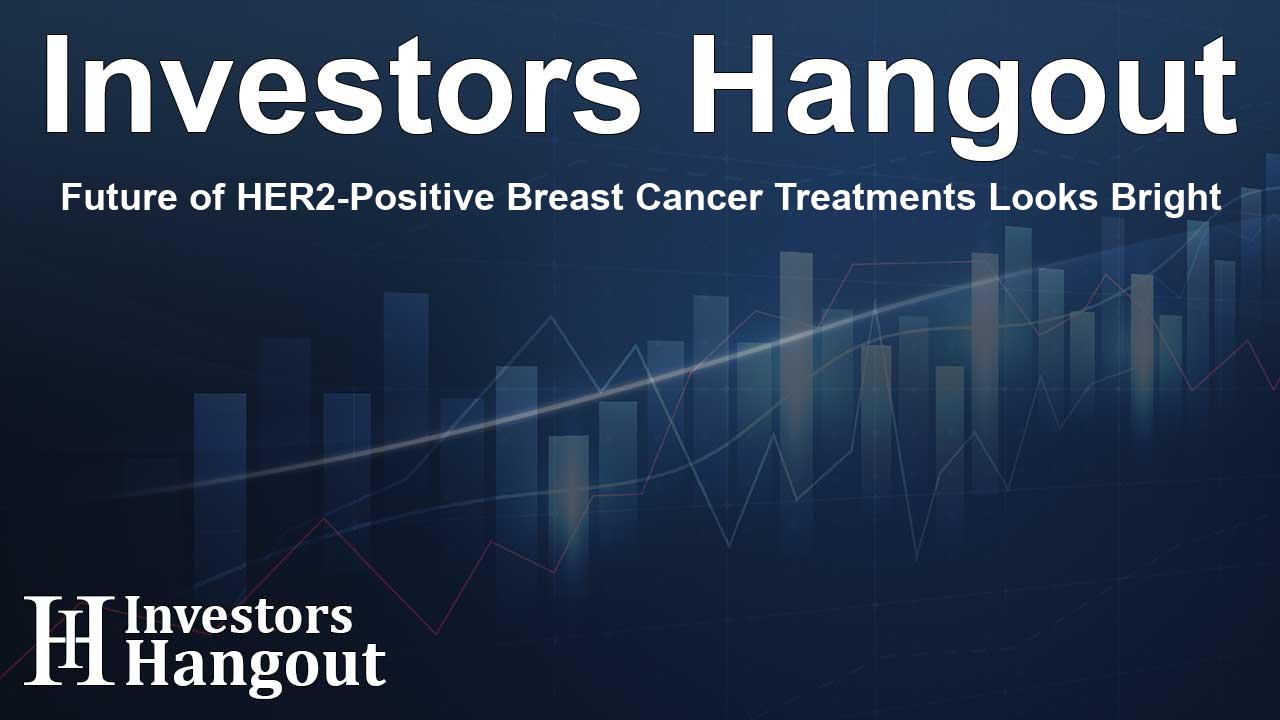Future of HER2-Positive Breast Cancer Treatments Looks Bright

HER2-Positive Breast Cancer Treatment Market Overview
The global HER2-positive breast cancer treatment market has witnessed significant growth, reaching a value of US$ 8.56 billion recently. Projections indicate it could soar to US$ 18.67 billion by 2033, reflecting a remarkable compound annual growth rate (CAGR) of 9.1% from the present until then.
Factors Driving Market Expansion
Several factors are contributing to the acceleration of this market. At the forefront is the increasing prevalence of breast cancer, particularly the aggressive HER2-positive subtype, which affects about 20% of diagnosed cases. This type is particularly prominent among younger demographics, with 30% of patients aged 15 to 29 testing HER2 positive. Enhanced diagnostic tools, like immunohistochemistry (IHC) and fluorescence in situ hybridization (FISH), have become essential in identifying patients who can benefit from targeted therapies, significantly improving treatment outcomes.
Cutting-Edge Therapies and Their Impact
The treatment landscape for HER2-positive cancers is rapidly evolving, with a strong focus on advancing targeted therapies. Standard protocols often include a combination of surgery, radiation, and systemic therapies such as trastuzumab and pertuzumab. These treatments, particularly when paired with chemotherapy, form the backbone of care. However, recurrence remains a pressing issue, necessitating the incorporation of advanced therapies like trastuzumab deruxtecan, tucatinib, and neratinib, which have shown promise in previously treated patients.
Commercial Success and Market Investment
Commercially, HER2-targeted therapies have proven to be a lucrative investment, attracting research and development funds from major biopharmaceutical companies. Drugs such as Enhertu have significantly impacted the market, generating approximately USD 2.9 billion in global sales in one reporting year alone. Similarly, Roche's Perjeta has seen remarkable success with sales around USD 4.5 billion. These commercial triumphs are stimulating growth in clinical pipelines, as pharmaceutical firms explore next-generation therapies to enhance treatment efficacy.
Challenges Facing the HER2-Positive Market
Despite the ongoing advancements, challenges persist, particularly in the realm of treatment costs. For instance, the price tag for Herceptin hovers around USD 1,674 per vial, while Perjeta can cost approximately USD 5,534 per dose. Such expenses pose considerable barriers in low- to middle-income regions, where access to these lifesaving therapies can be limited. Moreover, the financial implications extend beyond direct treatment costs, encompassing the broader economic burden on patients and healthcare systems.
Strategic Innovations in Personalized Medicine
The push towards personalized medicine is redefining treatment strategies for HER2-positive patients. As research into tumor biology deepens, approaches are moving away from a one-size-fits-all model. Emerging studies suggest that integrating treatments targeting not only HER2 but also estrogen receptors (ER) may yield better outcomes for patients with co-expressing tumors, presenting a new avenue for therapeutic exploration.
Global Trends Influencing the Market
Regionally, the global breast cancer landscape is experiencing transformation driven by innovative research and healthcare policies. North America, for instance, leads this charge, bolstered by extensive resources for clinical trials and a strong pharmaceutical presence. The annual funding allocated to breast cancer research remains the highest among all cancer types, underscoring the commitment to breakthroughs in early detection and treatment. Initiatives led by organizations such as Susan G. Komen focus on advancing research, providing critical financial support to encourage innovation.
Emerging Markets and Innovations
Europe maintains a solid position in this evolving market, aided by coordinated healthcare efforts ensuring consistent quality of care. For instance, Germany’s national screening programs for women significantly enhance early detection rates. The Asia-Pacific region is set for rapid expansion, driven by developments in healthcare infrastructure, increased regulatory support for biosimilars, and a robust focus on innovation. Notably, Indian startups are gaining momentum, with investments flowing into technology-driven cancer detection solutions.
Future Directions for HER2-Positive Therapies
As the market continues to evolve, there is a clear shift towards next-generation therapies that expand beyond traditional monoclonal antibodies. Clinical trials, such as DESTINY-Breast06, explore the efficacy of treatments like trastuzumab deruxtecan in newly defined patient populations. This progressive understanding indicates that patients with low or ultra-low HER2 levels—who represented a previously overlooked group—are now showing potential responses to targeted treatments.
Frequently Asked Questions
What is the projected market value for HER2-positive breast cancer treatment by 2033?
The market is projected to reach approximately US$ 18.67 billion by 2033.
What are the primary treatment options for HER2-positive breast cancer?
Key treatments include standard chemotherapy, targeted therapies like trastuzumab and pertuzumab, and newer agents such as trastuzumab deruxtecan and tucatinib.
How significant is the treatment cost issue?
High treatment costs are a major barrier, making it difficult for patients, particularly in lower-income regions, to access essential therapies.
What role does personalized medicine play in HER2-positive treatment?
Personalized medicine is crucial, shifting treatment strategies toward individual molecular profiles rather than standard protocols.
What are some upcoming trends in HER2-targeted therapies?
Emerging trends include dual inhibition treatment approaches and increased focus on patients with low HER2 expression levels in clinical trials.
About The Author
Contact Hannah Lewis privately here. Or send an email with ATTN: Hannah Lewis as the subject to contact@investorshangout.com.
About Investors Hangout
Investors Hangout is a leading online stock forum for financial discussion and learning, offering a wide range of free tools and resources. It draws in traders of all levels, who exchange market knowledge, investigate trading tactics, and keep an eye on industry developments in real time. Featuring financial articles, stock message boards, quotes, charts, company profiles, and live news updates. Through cooperative learning and a wealth of informational resources, it helps users from novices creating their first portfolios to experts honing their techniques. Join Investors Hangout today: https://investorshangout.com/
The content of this article is based on factual, publicly available information and does not represent legal, financial, or investment advice. Investors Hangout does not offer financial advice, and the author is not a licensed financial advisor. Consult a qualified advisor before making any financial or investment decisions based on this article. This article should not be considered advice to purchase, sell, or hold any securities or other investments. If any of the material provided here is inaccurate, please contact us for corrections.
